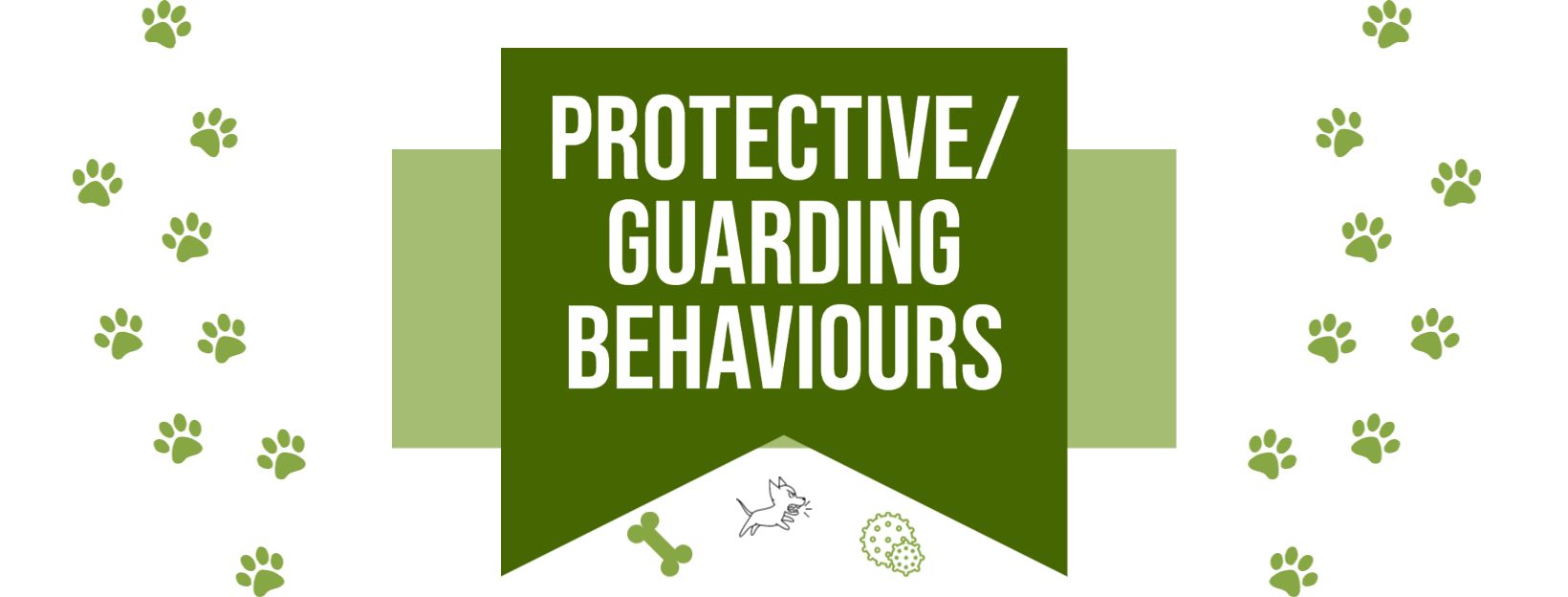
What is guarding?
Guarding involves aggressive possessive behaviour over food, treats, toys, objects, space, and/or humans, this can be directed towards other dogs and also toward people.
Many of Oakwood's dogs are ex-street dogs that have had to protect their food from other animals in order to survive, UK dog can also guard items in fear that someone is going to come and take them away.
If you are pulling things from your dog's mouth, taking treats off of them and are touching/fussing/interrupting them whilst playing, resting and eating they can quickly become fed up of your rude behaviour. If you continue to push the dog it can lead to them growling at you or even biting you if you ignore their body language.
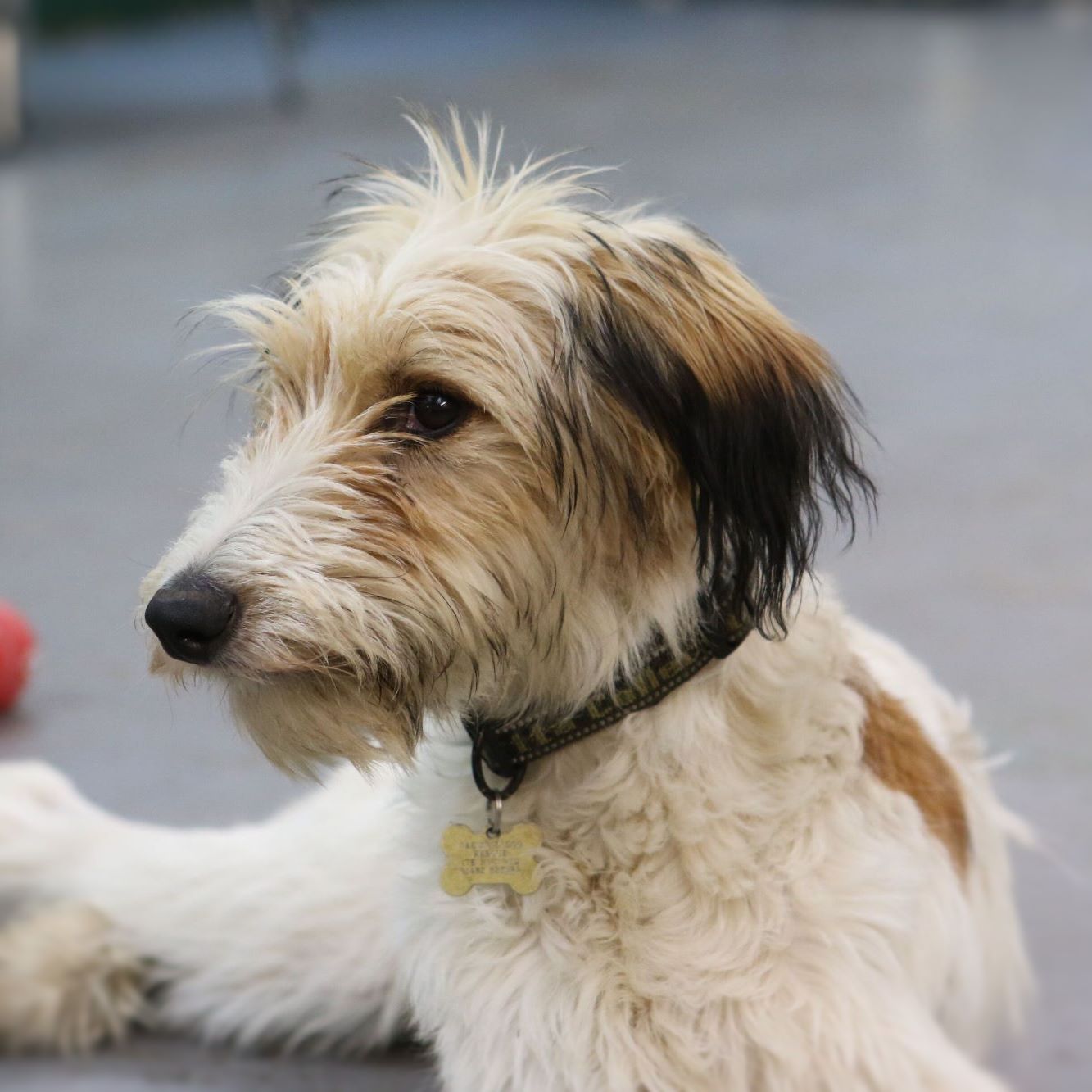
We highly recommend that if you dog ever takes something you don't want them to have, or if you ever need to take something from the dog, be this a Kong, toy, item of clothing etc, you perform a positive swap.
Performing a positive swap shows the dog that you are not taking their thing from them, instead, you are swapping it for something else. You can swap items for toys or treats.
What can you do to prevent guarding?
- Manage the environment: remove all potential guarding triggers. Don't leave food bowls, even empty ones, on the floor. Put toys away. Provide them only in controlled circumstances.
- Relocate your dog's feeding area to a low-traffic area.
- Spend 2 to 4 weeks pre-conditioning your dog. Feed 2 to 3 times a day, placing his bowl in a confined feeding room. Bring him to the room, leave and close door until he's finished eating.
- Attend a positive training class using treats your dog likes as rewards.
- Implement a "Say Please" (or "Nothing in Life is Free") program in which your dog has to earn all good things. Sit or lie down to get food, treats, toys, walks, and outside playtime.
- Exercise/play with them or hide treats around the garden (for nervous dog). A tired dog is usually a well-behaved one. Mental games also help engage the dog and improve behaviour.
- Identify, and avoid, situations that trigger aggression.
- Don't punish your dog if a food guarding or other aggressive incident occurs. Punishment usually elicits confusion and more aggression, and reinforces his association that someone near his food bowl is bad.
Preventing food and toy guarding in a multi-pet household:
- Feed pets separately - allocate a room for each pet
- Take bowls up after eating to prevent them from guarding the bowls from one another
- Don't feed treats next to one another - that's a disaster waiting to happen
- Monitor the animals and supervise if giving them long-lasting treats
- Teach 'Leave it' and use the command if your dog approaches the other pets food/toys/treats
- If leaving them with Kongs/long-lasting treats the dogs need to be separated.
- If leaving them with toys ensure there are no toys out that either pet guards from the other
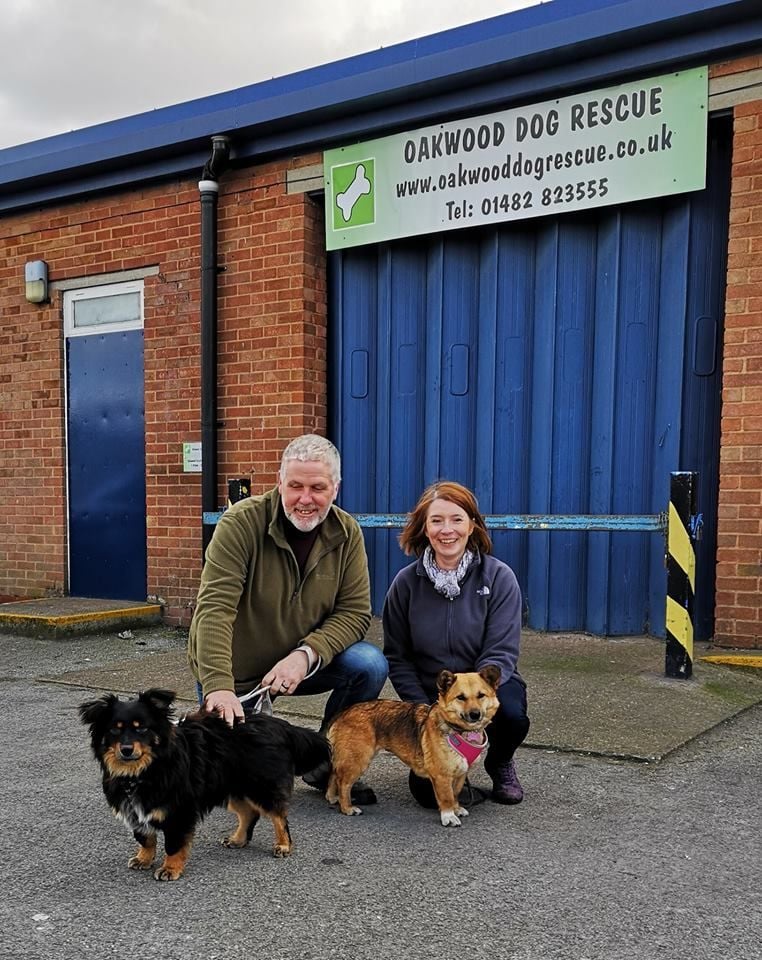
People guarding
People guarding can occur in all dogs. The dog views the owner as their world and can act like jealous children if their owner touches or interacts with another dog, or even another person.
What does it look like?
- Running over and pushing another dog/person away with their body if you try to interact with another dog or human, or them with you.
- Keeping a short distance from you and blocking another dog/person from approaching you.
- Growling at another dog/person if your dog is sat with you and you touch another person/dog.
- Snapping, lunging at or fighting with another dog, snapping at, or biting a person if they come in close contact with you.
People guarding can be managed if it is not serious, but it can be difficult. We avoid adopting to homes with people-guarding dogs as it is very stressful for both dogs involved, and for you and if not managed, it can easily escalate into a bigger problem. Dog's that have lived as only dogs for a good portion of their lives can people guard, and dogs that used to live with another dog, but the dog has passed away can also begin to people guard as the human and the home are now solely theirs. Some Rommies have been known to people guard as you become the main thing in their lives and they donw want to share.
What can I do if I notice people guarding in the home?
- Do not draw attention to it and do not panic
- Do not tell the dog off or punish the dog
- Keep an eye on both dogs body language - is one dog suddenly stiff? Can you see whale eye? Are they beginning to bare teeth?
- If so, stand up. Do not talk to either dog, touch either dog or fuss either dog
- Leave the room, if one dog tries to follow you, shut the door after you and wait for ten seconds
- Return to the room and sit back down, do not speak to the dogs, touch or fuss them. Continue what you were doing before
- If the dog's begin again, repeat the above process
You may find that you need to leave the room 5 times, or even 10 times before the dogs settle down and get the message. What they're learning is that if they begin to guard you from one another they lose out on your attention.
Don't feel bad if you need to separate the dogs at points. One dog can be outside away from the other for a while if they need to be.
If you are struggling, please speak to the trainers for support. For people guarding from people, also speak to the trainers.
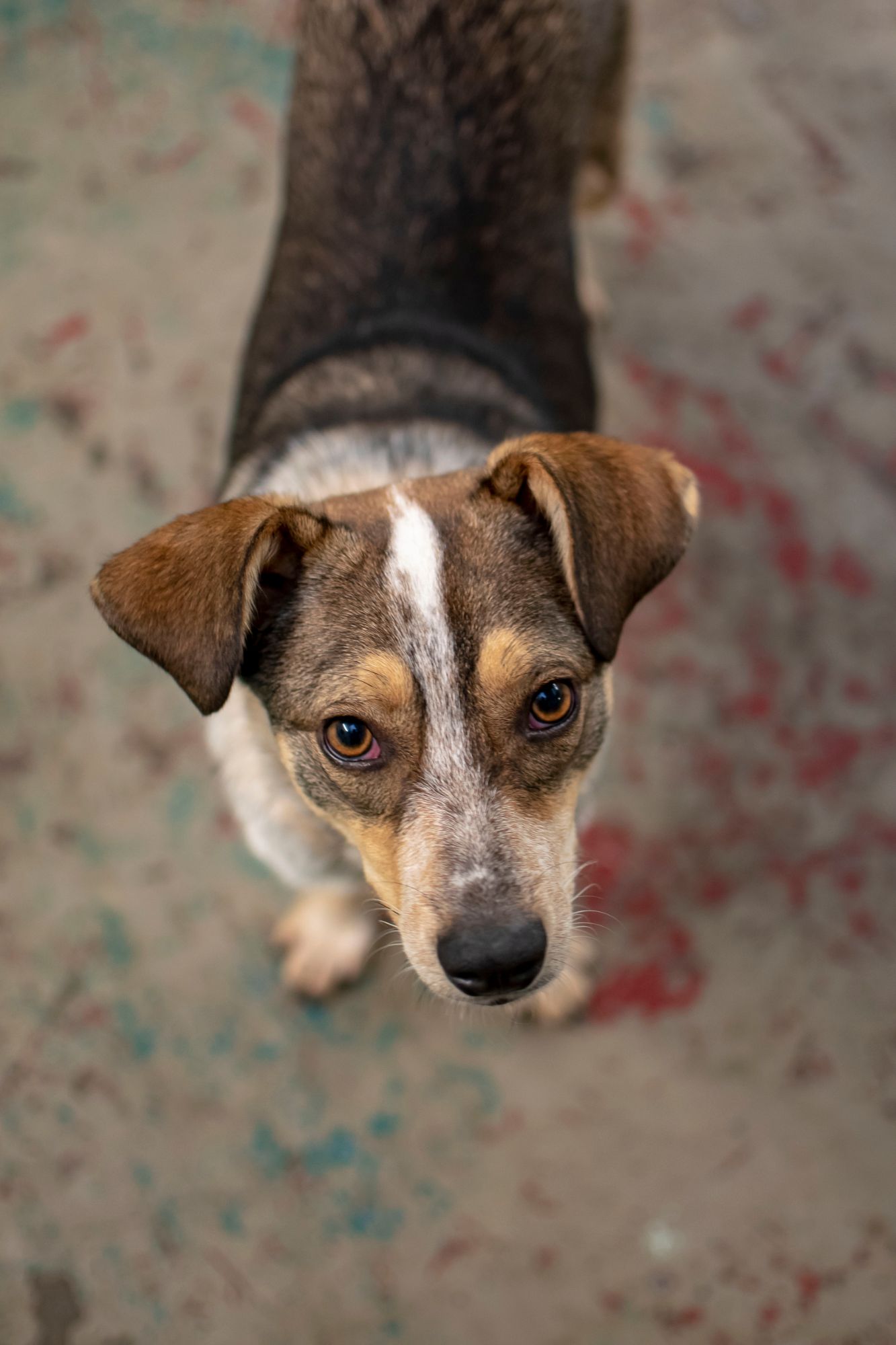
Location guarding
Location guarding is a dog being protective over a particular room.
If the dog is known to do this the Oakwood Staff will notify you.
If you are concerned that your dog is location guarding:
- Do not walk into the room with them
- Find some tasty treats and begin throwing a treat toward them, lure the dog out of the room and throw a treat a distance away from the room.
- Close the door, preventing the dog having access to the room, do not allow them back in
- Call the trainers to discuss the issue
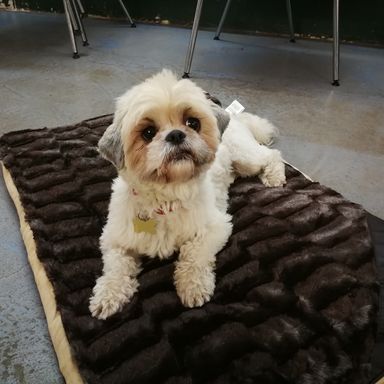
Bed guarding
Bed guarding can also occur - it fallus under rescource guarding but many people have reported that their dog has guarded their beds from them and so it is important to cover it.
Ways to prevent bed guarding:
- Have the dog's bed in a quiet area where people will not be constantly walking past or disturbing them
- Make the dog's bed or crate an 'off-limits' zone, meaning nobody touches or approaches the dog whilst in/on their bed
- If you have multi-pets, have their beds in separate areas from one another to prevent them fighting over the beds
- Do not stoke a dog in their bed at all
- Do not put your face near a dog in their bed
- If you need them to move out of their bed lure them into another room with treats, or with toys if they are not food oriented and shut the door
- If the dog takes things to their bed and guards things whilst in their bed, when they're shut away from their bed remove the items. If there is an item that is repeatedly guarded we recommend getting rid of it.
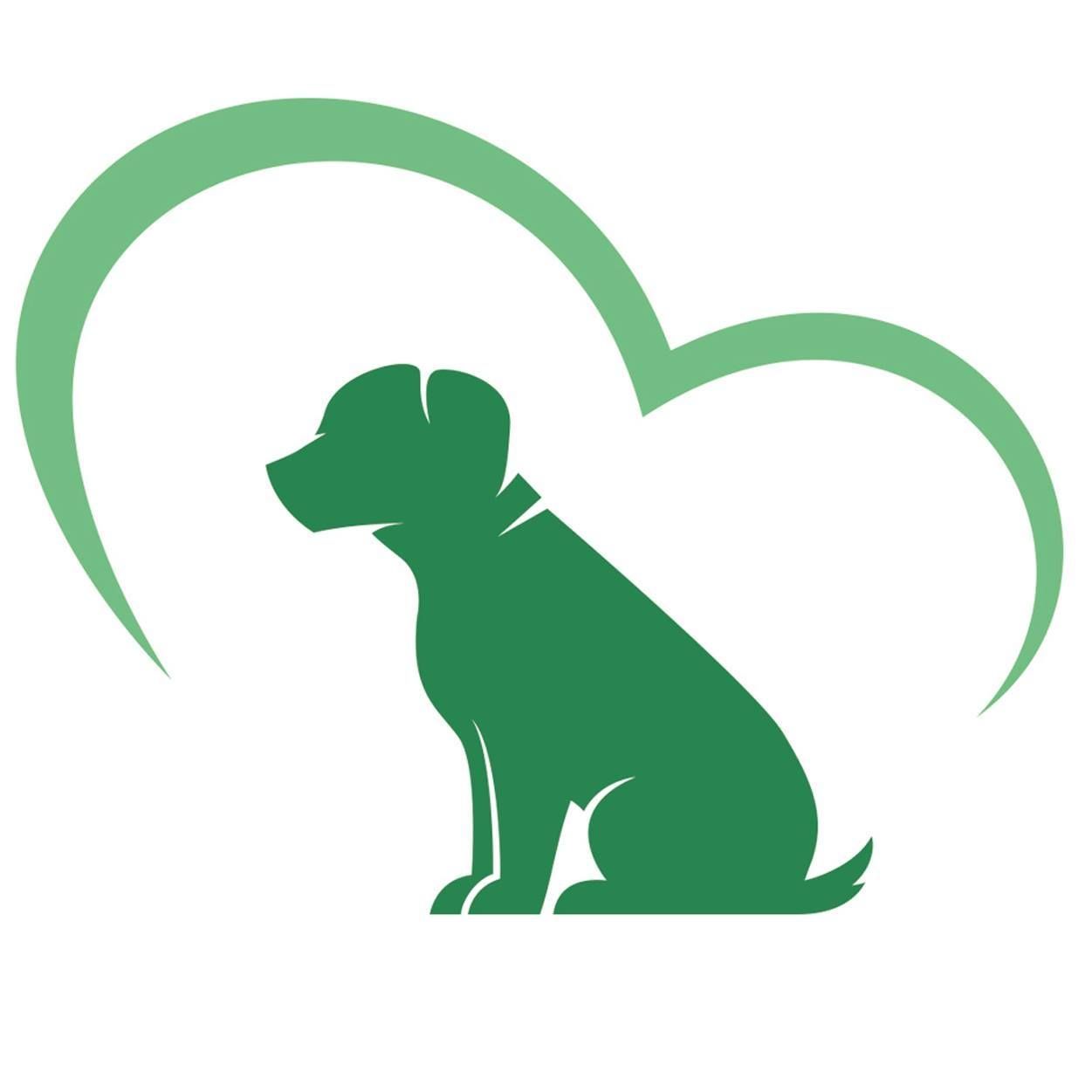
If your dog's guarding behaviour is intensifying please contact:
Tel: 01482 823555 (you will need to leave a voicemail)
Email: training@oakwoodcanineservices.co.uk
Website: http://www.oakwood-canine-services.co.uk/contactus.html